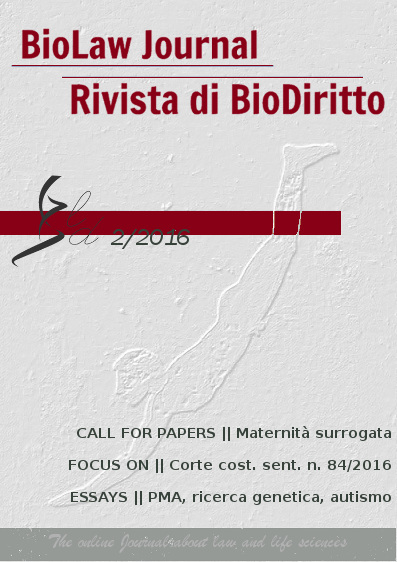Autonomia come integrità: una riflessione sulle direttive anticipate di trattamento
DOI:
https://doi.org/10.15168/2284-4503-170Parole chiave:
Individual freedom (autonomia individuale), Living will (testamento biolo-gico), Persistent Vegetative state (stato vegetativo persistente), Minimal Conscious State (stati minimali di coscienza), Life-sustainig treatment (idratazione e alimentazione artifAbstract
The aim of this article is to inquire about the possibilities and the limits of-fered by living will and explains the debate on which the Italian legislative branch is still examining and discussing. A special attention is given to the meaning of artificial nutrition and hydration.
A regard is given to the capacity that the brainimaging technique has to realize a more exact prognosis of the cerebral recovery possibilities in order to reduce the diagnostic mistakes and the cases of life- sustaining treatment interruptions of people only apparently lacking of mental capacity.
With regard to the ethical decisions to put an end to life, the author proposes to revise the traditional ethical debate about the difference between killing or leaving to die by natural death, in the light of the new moral choices that the actual new acquisition techniques of fMRI made possible.
Finally, it has been proposed to support the individual freedom in the choice to inter-rupt or not life- sustaining treatments, the Ronald Dworkin concept of individual freedom. This conception has been introduced as a central and unavoidable element of the individual identity and as an unavoidable condition for a human self-respect.





